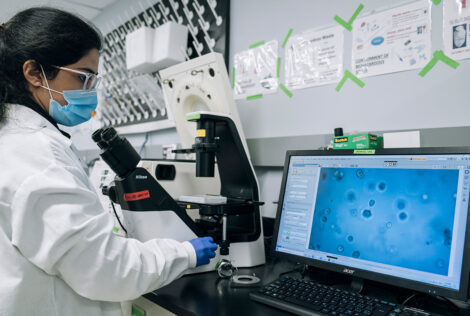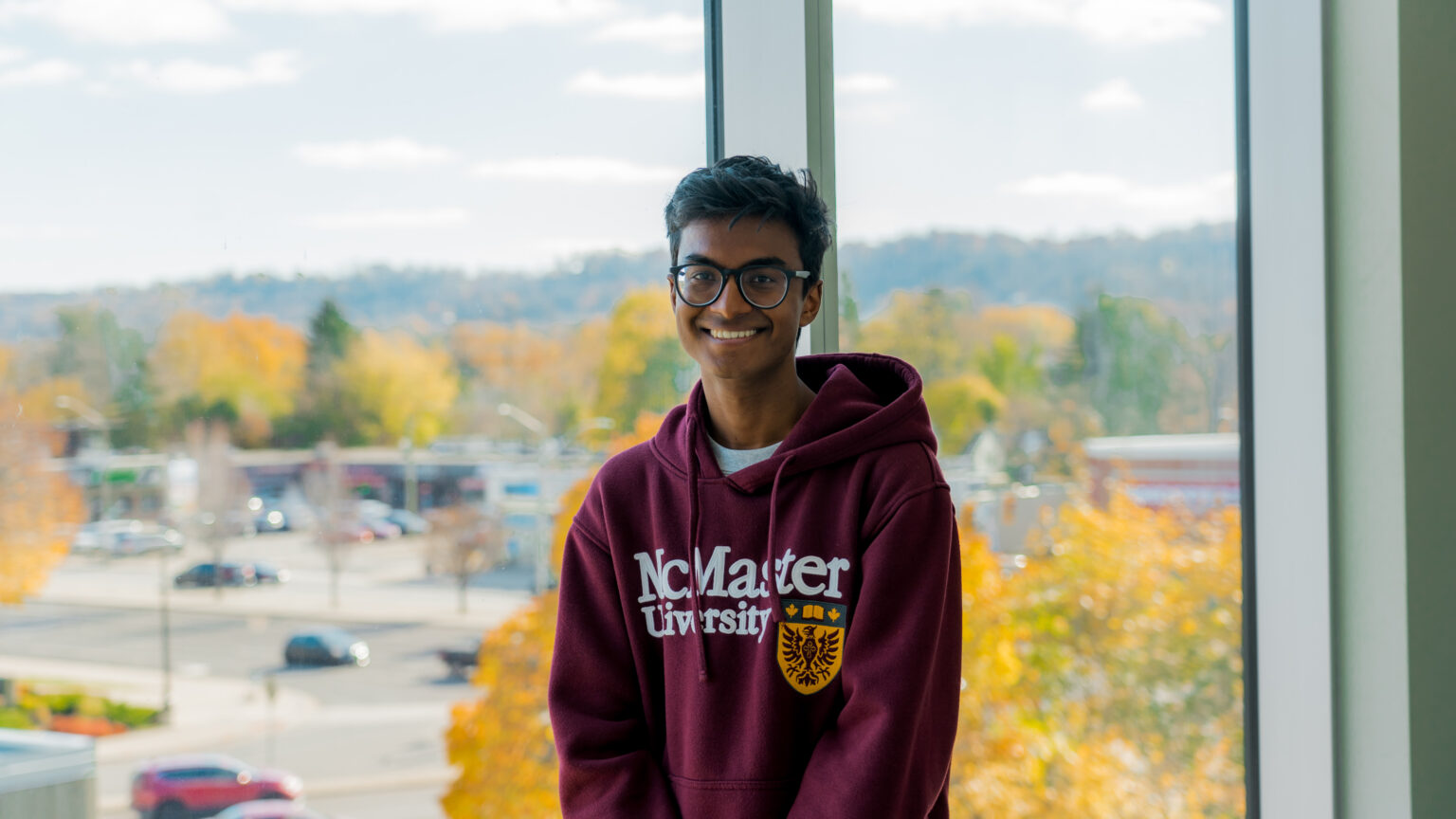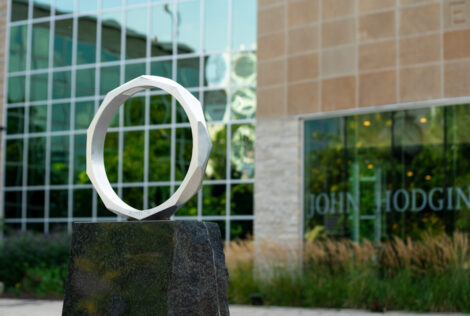

Not everyone is born with the gift of gab. Struggling to find the right words or expressing oneself confidently can make interactions challenging.
Second-year Computer Engineering student and McMaster Rocketry Team member, Jaavin Mohanakumar, turned a lifelong passion for coding and programming into a tool to address this concern – a shareable AI clone called MeGPT.
Building your AI clone
The concept of using AI to help put thoughts into words has been gaining in popularity in the past few years, but still has gaps in its application, says Mohanakumar. Chat GPT, for example, requires much context from its user to output the desired tone in its response.
In simplified terms, MeGPT is an AI web application that can be designed and programmed to respond like a specific person. Using MeGPT, a user can have a two-way conversation with someone’s AI clone.
What makes Mohanakumar’s product so niche is its ability to capture tone and personality in its machine-generated responses, which expresses responses that seem human.
“MeGPT is a neural language model on a supercomputer that reads a huge amount of text and learns to predict the next word,” explains Mohanakumar.
These AI models become more aligned with large amounts of data. With MeGPT, the idea of context is already embedded into the program, so it will automatically follow the tone of voice of a specific entity, like me, or even Oppenheimer.
To test the effectiveness of his application, Mohanakumar created a clone of who he knows best – himself. His own MeGPT can be found on his website. Visitors can type in anything they want to know about him, from his favourite colour to his work and technical skills, and instantly receive an AI-generated answer in the speaking style of Mohanakumar’s own voice. The language output uses words and phrases he’d typically use in real interactions.
Confident that it worked as intended, Mohanakumar began to test out the tool with fictional characters. Barbie MeGPT has become a favourite among users.
An overwhelming, positive response
Within the first 24 hours of launching, MeGPT attracted 518 users and more than 2,200 visitors across North America. Its popularity in Mexico was a surprise to Mohanakumar – the application works well across multiple languages despite being programmed mainly for English speakers.
Users of the new app reached out to Mohanakumar to thank him for his invention. “I learned that people were using the tool as a means to communicate with their loved ones about emotional moments in their lives,” he says. “A retired Airforce Veteran from the U.S. shared that he used the app to articular his experiences in war to his children, something he was never able to find the words to do himself.”
Putting the app in business applications
While the app started as a hobby, afters its launch and warm reception, Mohanakumar realized it could be used to enhance people’s online professional presence, particularly when applying to jobs. He added his MeGPT to his resume and job applications to invite recruiters and potential employers to learn more about him instantaneously without needing to reach out and await a response.
“It’s the ultimate pre-screening tool for recruiters,” Mohanakumar says. “It also gives me reassurance that if there was something about me or my application they questioned, they could ask my MeGPT and get the answer they’re looking for on the spot. It could make the difference of being selected for an interview or passed over.”
Businesses across multiple industries have connected with Mohanakumar, interested in applying MeGPT software to their own websites. Its ability to capture brand voice and persona is highly sought after, as it has the potential to replace the standardized AI chat functions on many websites.
Mohanakumar credits his first-year 1P13 design course for igniting a spark for creating accessible tools and his entrepreneurial spirit. “Being challenged with hands-on learning experiences that nurtured my sense of curiosity in computer engineering has led me down so many new and exciting pathways,” he says. “I can see how my skills can make an impact in the world.”


